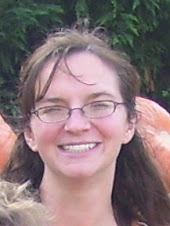Last night, I told my six year old to hold both sides of his plate.
"Wouldn't it be cool," he asked, "if our plates could float? And then we would have to hold them?"
That's a cool idea, isn't it? There's not a huge lesson here, but it was a nice reminder to me to look beyond what is, to what could be.
In "Character and Viewpoint," Orson Scott Card shares a writing exercise that he's done when visiting schools to show how easy it is to develop an idea by asking questions.
Do you want the story to be about a boy or a girl?
-A boy! No, a girl!
Ok, then, we won't decide yet. How old is this person?'
-Ten! No, Twelve!
Twelve? Why Twelve? What happens when you're twelve?
-You can stay up later.
Oh? And what do you do when you stay up later?
-Watch TV!
-The good shows!
-Scary shows!
What else can you do?
-Stay up late!
He continues with this exercise until they have a kid who is babysititng and the baby won't stop crying (What can go wrong when you're babysitting?) and he ends up calling an ambulance, which gets there right as the parents get home. Pretty good for fourth graders!
The point is, you keep asking questions. Even ten drafts in, writers should be asking questions. How can these characters have more tension between them? What's the craziest thing that could happen?
How do you develop your ideas? Is it different in rough draft vs. polishing? Do you have a favorite question you ask your story?
The Balance of Letting and Making
-
I’ve never been one to follow the “rule” that a writer needs to write every
single day; judging by conversations with my writer friends, few of us do.
Ho...
7 hours ago



Great post, Kelly. I need to ask myself that tension question more when I'm writing. Or "Is this really the WORST thing that could happen?" I need to be meaner. I'm working on it. :)
ReplyDeleteAmy